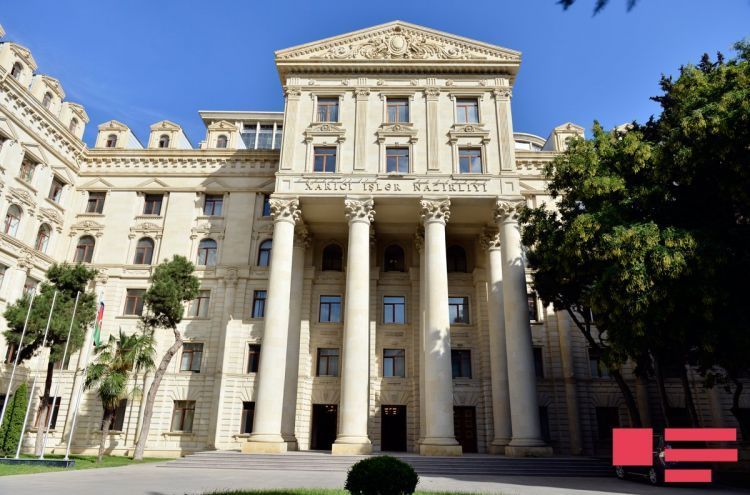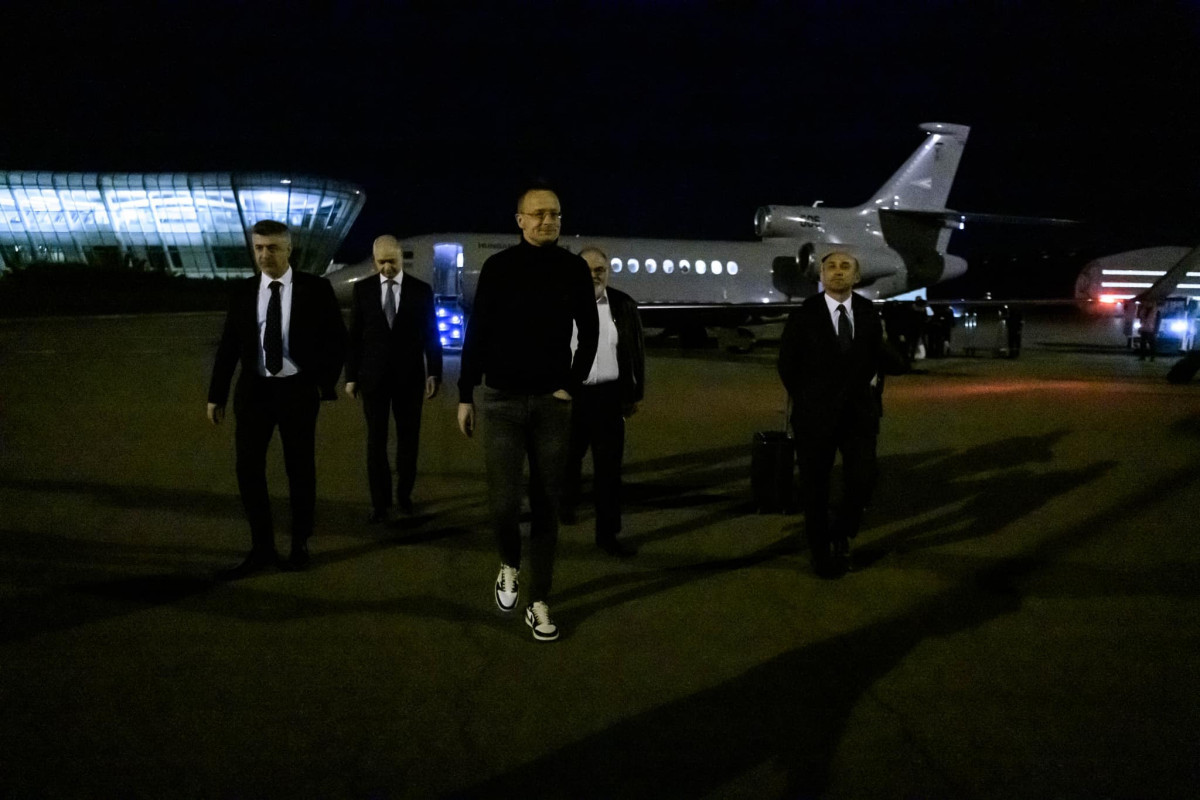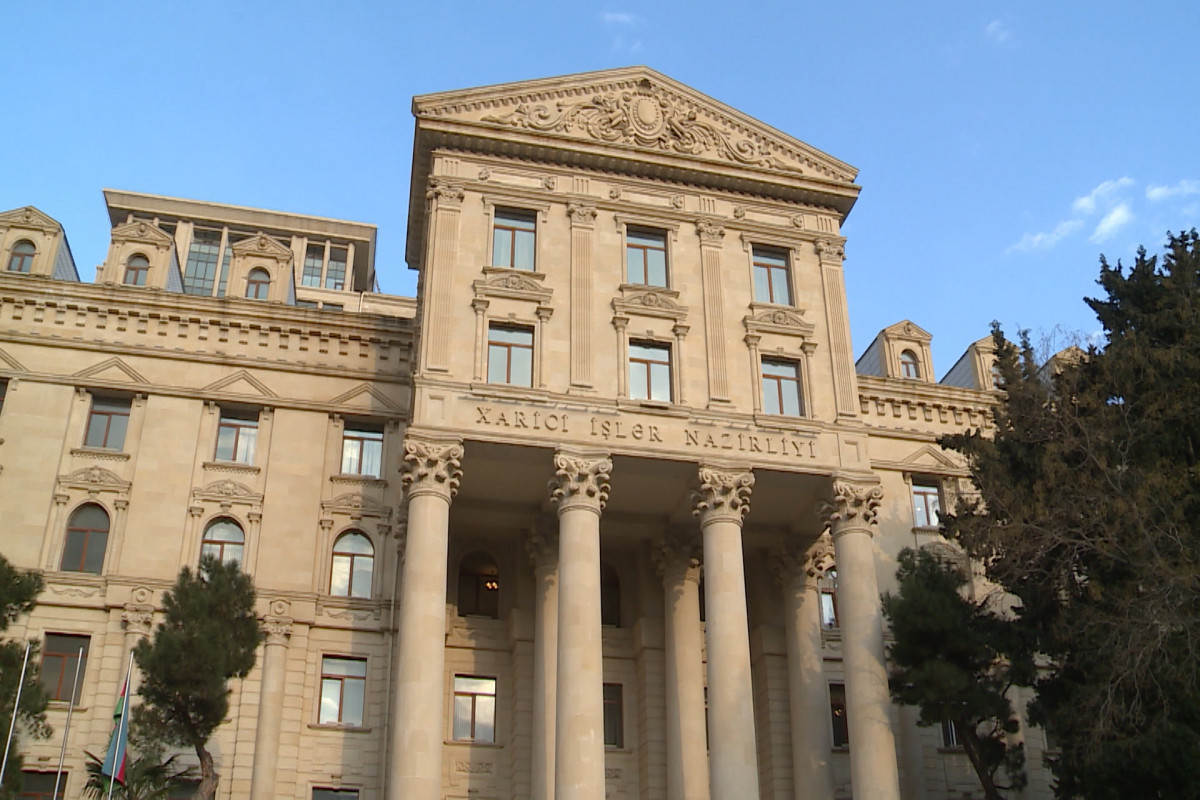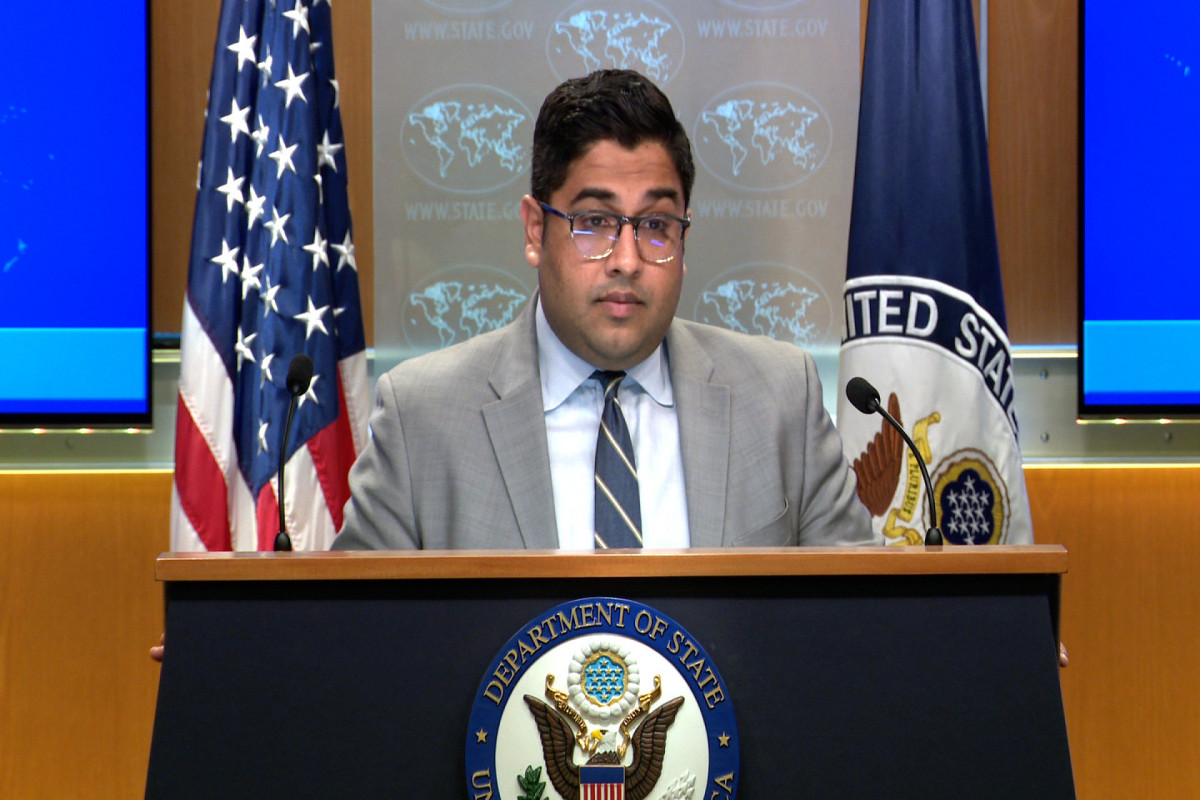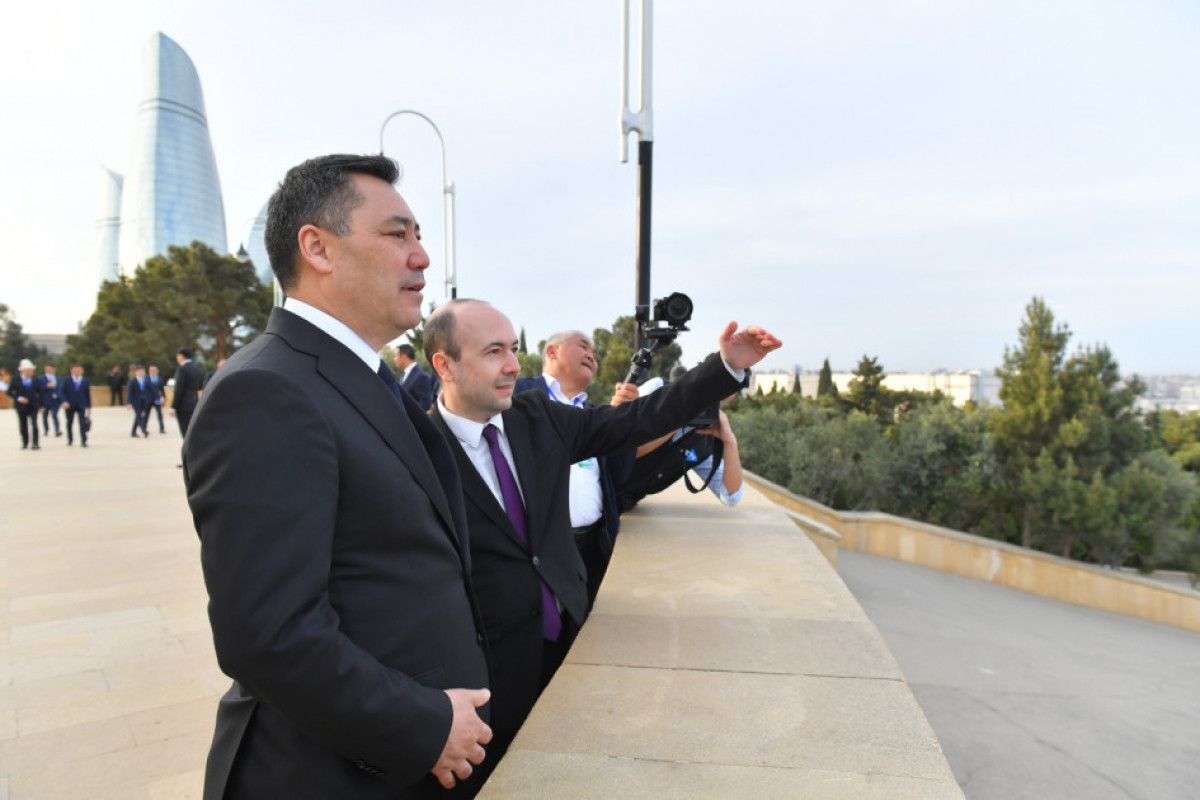Permanent Mission of the Republic of Azerbaijan to the UN participated in the open discussions of the UN Security Council held via videoconferencing on the protection of civilian people during armed conflicts on May 27, 2020, and a speech was delivered, the Ministry of Foreign Affairs told APA.
The speech of the Permanent Mission reads that the issue discussed was important for the UN Security Council, the international community and, in particular, for Azerbaijan.
Statement of the H.E. Mr. Yashar Aliyev Permanent Representative of the Republic of Azerbaijan to the United Nations at the Security Council open debate on the protection of civilians in armed conflict reads: "At the outset, I would like to thank the delegation of Estonia for convening this open high-level videoconference meeting on the protection of civilians in armed conflict and for sharing the concept paper on the topic (S/2020/402). We also thank the Secretary-General for submitting the report on the protection of civilians in armed conflict (S/2020/366) and the briefers for their presentations.
The issue we are discussing today is of utmost importance for the Security Council, the entire international community, and for my country in particular. Civilians continue to suffer from armed conflicts, whether new or protracted, active, or suspended under ceasefire accords. During the reporting period, tens of thousands of civilians were killed or injured, millions of people were forced from their homes, direct or indiscriminate attacks damaged and destroyed homes, schools, hospitals, places of worship and other civilian infrastructure. Moreover, millions of displaced persons are prevented from returning to their homes and face limited prospects for early solutions. Alarming numbers of people continue to remain missing in connection with armed conflicts.
As the Secretary-General has noted in his report, the COVID-19 crisis has created incentives for some parties to conflict to press for an advantage. Their actions may envisage not only the recourse to force but also attempts to use the current health crisis and appeals for an effective humanitarian response to the pandemic as a shield for consolidating military gains resulting from the use of force, ethnic cleansing and other serious violations of the Charter of the United Nations and international law. Spurious peacefulness and commitment to truce and ceasefire are among the tools that aggressors frequently employ to freeze territorial seizures and promote and enhance the scorched earth policy.
Therefore, the most effective way to prevent the outbreak, escalation and continuation of armed conflict and thus to protect civilians is to prioritize respect for international law in all circumstances and by all available means, along with ensuring the earliest resolution of conflicts and accountability for serious violations.
In a similar vein, humanitarian relief actions should, by definition, be exclusively humanitarian in nature. They must be carried out in conformity with the guiding principles on humanitarian assistance of the United Nations, namely, the principles of neutrality, impartiality and consent of the affected country, while fully respecting the sovereignty, territorial integrity and national unity of States in accordance with the Charter of the United Nations.
The forcible deportation of some 250,000 Azerbaijanis from their homes in Armenia at the end of the 1980s was accompanied by killings, enforced disappearances, the destruction of property and pillaging. At the end of 1991 and the beginning of 1992, the full-scale war that was unleashed by Armenia against Azerbaijan claimed the lives of tens of thousands of people and caused considerable destruction of civilian infrastructure, property, and livelihoods in my country. A significant part of the territory of Azerbaijan, including the Nagorno-Karabakh region, the seven adjacent districts, and some exclaves, was seized by Armenia and remains under its occupation, in violation of international law and Security Council resolutions 822 (1993), 853 (1993), 874 (1993) and 884 (1993).
The occupied territories were ethnically cleansed of all Azerbaijanis, as a result of which more than 1 million people were forced to leave their homes and properties in these territories. Furthermore, Armenia has pursued the deliberate policy of strengthening its military build-up in the seized territories and changing their demographic, cultural, and physical character, in clear violation of international law. These activities undermine the rights and freedoms of hundreds of thousands of people uprooted from their homes and pose an imminent threat to peace, security, and stability in the region.
Besides, as of the beginning of 2020, 3,889 citizens of Azerbaijan were registered as missing as a result of the conflict, including 719 civilians. Among the civilians, 71 are children, 267 are women and 326 are elderly persons. It has been established that 871 of the 3,889 missing persons were either taken as prisoners of war or hostages, including 604 servicemen and 267 civilians, of whom 29 are children, 98 are women and 112 are elderly persons. Armenia is in breach of international law for refusing to account for the missing persons within its control, as well as for refusing to conduct a prompt and effective investigation into the fate of the missing persons and into the existing evidence that at least 871 of them have been taken into its custody and have not been seen since.
The recently published comprehensive report on war crimes in the occupied territories of Azerbaijan and Armenia’s responsibility (A/74/676-S/2020/90) provides convincing evidence as to the range, variety and consistency of Armenia’s commission of multiple war crimes, including those relating to civilian deaths or injuries; civilian property; the mistreatment of detainees and prisoners of war; the taking of hostages; ethnic cleansing, forced displacement and changing the character of the occupied territory; the destruction of cultural heritage; and damage to the natural environment. Some of the offences examined in the report amount to the crime of genocide, as ethnic Azerbaijanis have been targeted because of their nationality and/or ethnicity, and the relevant intent has been to destroy the group in part.
The facts contained in the report necessitate prompt action by the United Nations, its relevant organs and mechanisms, Member States, other relevant international organizations and the international community as a whole to ensure accountability, in accordance with the international law of State responsibility and international criminal law. As the Secretary-General made it clear in his report, to prevent the recurrence of war crimes and provide justice to victims, allegations of war crimes require credible investigation and prosecution wherever and whenever they occur (S/2020/366, para. 58).
To conclude, it is critically important that the Security Council consistently maintain its focus on the protection of civilians affected by armed conflicts and systematically reiterate its demand that parties to armed conflict comply fully with their obligations under international humanitarian law."


